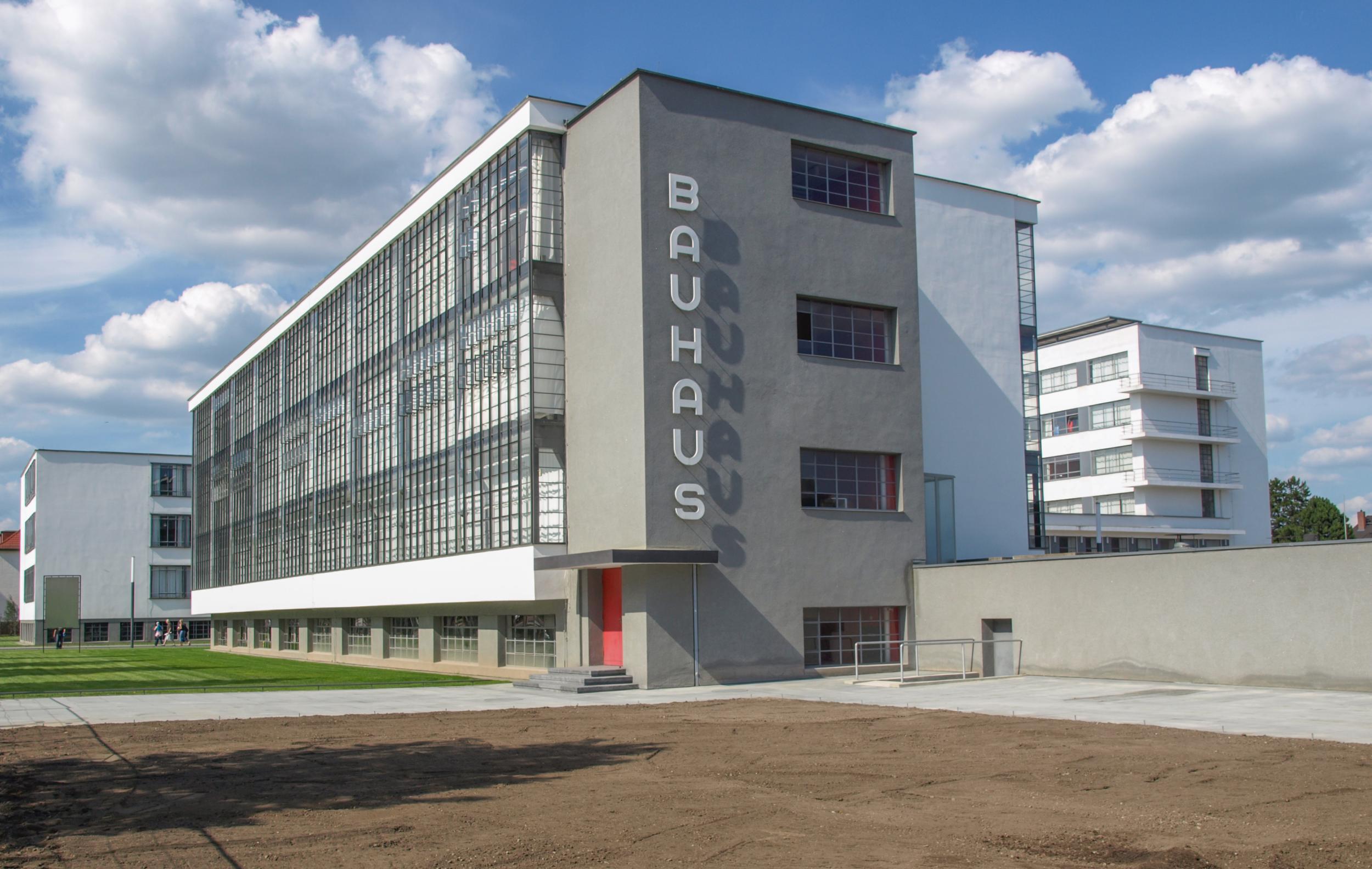Bauhaus at 100: The best places around the world to explore the German design movement
Bauhaus architecture, characterised by its form-follows-function principles, celebrates 100 years this year. Daniel Pembrey rounds up the best Bauhaus cities in Germany and beyond

The Bauhaus school of design turns 100 this year. The style, recognisable for its flat roofs, white or glass-skinned walls and boldly modern details, has influenced skyscrapers, typefaces and most things in between.
Celebrations will happen around the world, but especially in Germany, where the school’s original brilliance was short-lived. Founded in Weimar in 1919, the school was deemed un-German by the Nazis and shut down in 1933. The diaspora of the émigré “Bauhausler” simply hastened the spread of the school’s influence – to some fascinating, far-flung places including Tel Aviv and Chicago.
Here are the best places around the world to see the Bauhaus style in its centenary year.
Berlin, Germany
Soho House enlivens a monumental 1920s Bauhaus building in Berlin’s Mitte district that reflects the city’s turbulent past. Once a Jewish-owned department store, it became the Hitler Youth HQ, later an East German government archive repository. It’s a good base to explore the Bauhaus-related events planned in the capital throughout 2019 (doubles from €296/£263).
“We devised an events programme to meet the needs of everyone – from those who know very little about the Bauhaus right through to subject matter experts,” says Annemarie Jaeggi, director of the Bauhaus-Archiv. Pick up a Berlin Welcome Card, covering public transport across the city.
Dessau, Germany
In its 1925-32 heyday, the Bauhaus was based in Dessau, an industrial region considered to be the Silicon Valley of its time, less than two hours’ drive from Berlin. Stay in hall-of-residence-style digs at the Bauhaus studio building and imagine the experience of the celebrated student body there (doubles from €60). Don't overlook the nearby Masters’ Houses where school leaders and legends including Walter Gropius and László Moholy-Nagy lived among pine trees. Twenty minutes’ stroll from there is Carl Fieger’s beautifully curved Kornhaus café, on the bank of the Elbe, where you can enjoy tea and torte.
Weimar, Germany
Weimar is an ancient but vibrant student city two hours’ drive from Dessau. Its Hotel Elephant was recently renovated and features a delightful lichtsaal or “light hall”, with art covering its walls. A short walk takes you to the university buildings where the founding Bauhausler unified the art and craft schools (previously entirely separate disciplines). The Hotel Elephant has a suite named after Lyonel Feininger, the painter who designed the first manifesto cover depicting a cathedral as a crystalline symbol (Feininger’s suite from €560, B&B; other rooms from €150).
Usedom, Baltic Sea
There are many other Bauhaus locations in Germany to choose from – for example, the Weissenhof Estate in Stuttgart, or the Fagus Factory in Lower Saxony.
For a different experience, head north to the island of Usedom (three hours’ drive from Berlin) on the Baltic Sea. This is where early Bauhaus master Lyonel Feininger holidayed, painted and cycled. You can stay at the charming Wasserschloss Mellenthin (doubles from €100), one of his subjects. Enjoy its brewery, and bike the Feininger Cycle Trail running beside it. The nearby village of Benz has a rustic church that Feininger also painted. The Kunstkabinett gallery there specialises in Feininger’s work. You’ll soon see why he fell in love with the area.
Brno, Czech Republic
The Bauhaus’s influence was soon felt abroad. Mies van der Rohe, the last director of the school, was asked by the Tugendhat family of Brno to design a house on a plot of land overlooking this ancient capital city of Moravia.
Mies created the first steel-framed building of its kind – a masterclass in the flow of space between internal and external zones. The house inspired Simon Mawer’s Booker Prize shortlisted novel The Glass Room, now being made into a film with Czech director Julius Sevcik. The Tugendhats enjoyed the villa for just seven years before they had to flee the Nazis in 1938. Book ahead.
London, UK
You don’t have to look far in London to find Bauhaus gems. An English Heritage plaque outside the ocean liner-like Isokon Flats in north London, shows that artists Walter Gropius, Laszlo Moholy-Nagy and Marcel Breuer relocated there during the 1930s. It now houses the Isokon Gallery with a permanent exhibition about the building plus a shop. Elsewhere in the capital, Tate Britain and the William Morris Gallery will stage Bauhaus centenary events.
Tel Aviv, Israel
The Bauhaus diaspora adapted the school’s style to new environments, but in Tel Aviv, émigré Bauhausler found a location where white, flat-roofed buildings and balconies or external walkways were better suited than in Germany given the heat and light. More than 4,000 such buildings were constructed here by 1940, many in the central White City, an Unesco world heritage site. The Bauhaus Centre Tel Aviv offers walking tours and, from January, centenary events.
Chicago, Illinois, USA
Several US cities lay claim to exemplary Bauhaus (influenced) architecture. Chicago is where Mies van der Rohe taught for the latter part of his career at the Illinois Institute of Technology, designing his signature statement towers such as 860-880 Lake Shore Drive plus some exquisite private residences: the Farnsworth House, 60 miles southwest of the city, open April-November, is well worth the drive.
Travel essentials
For more information about travel to and within Germany, visit germany.travel
For more information about the Bauhaus centenary, see bauhaus100.de/en
Subscribe to Independent Premium to bookmark this article
Want to bookmark your favourite articles and stories to read or reference later? Start your Independent Premium subscription today.

Join our commenting forum
Join thought-provoking conversations, follow other Independent readers and see their replies